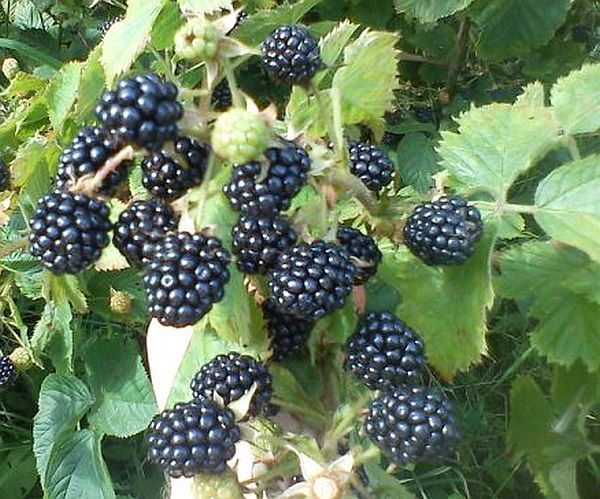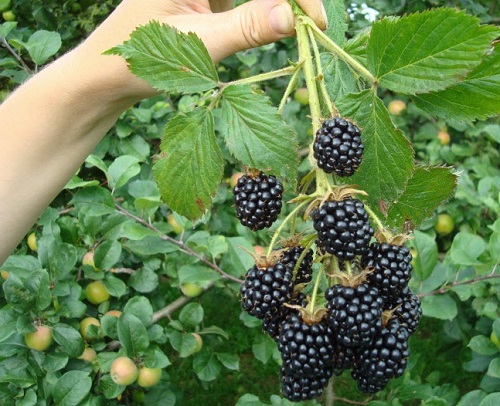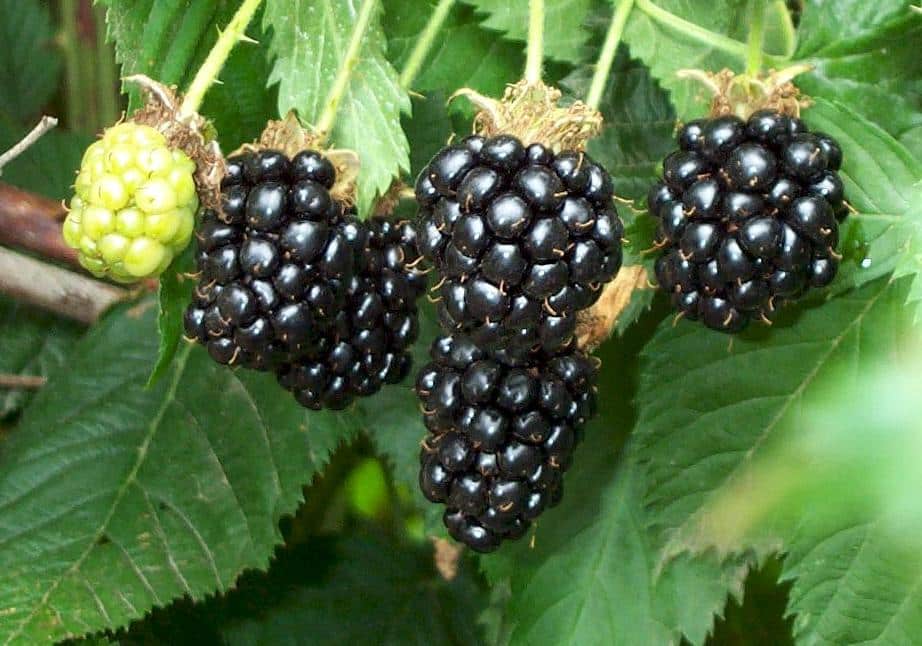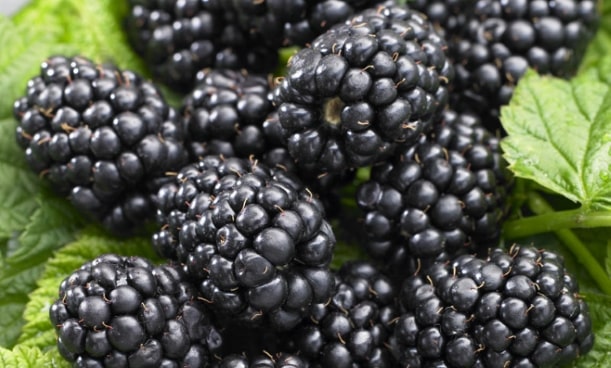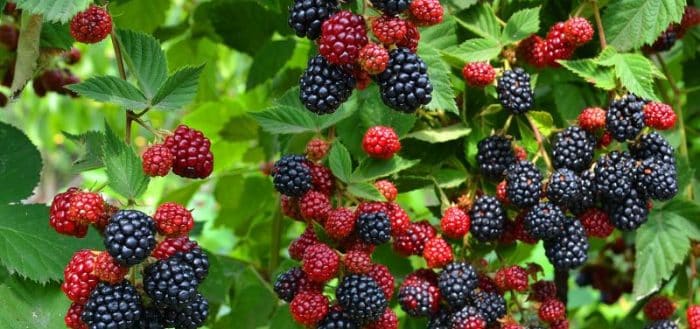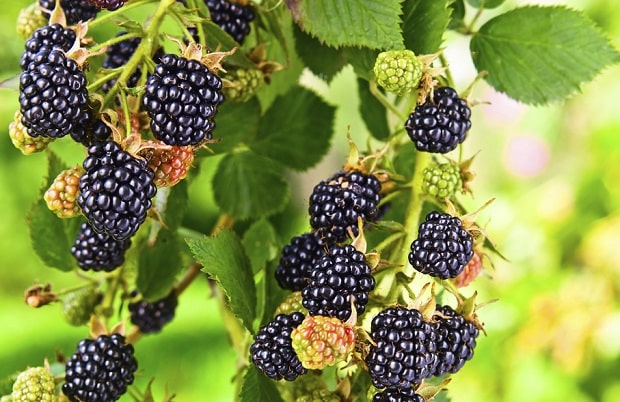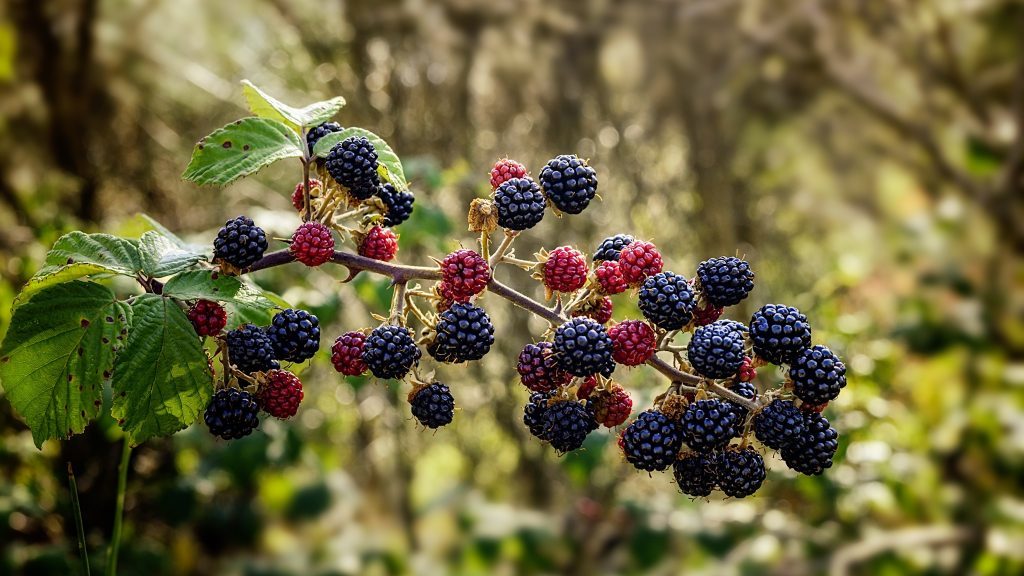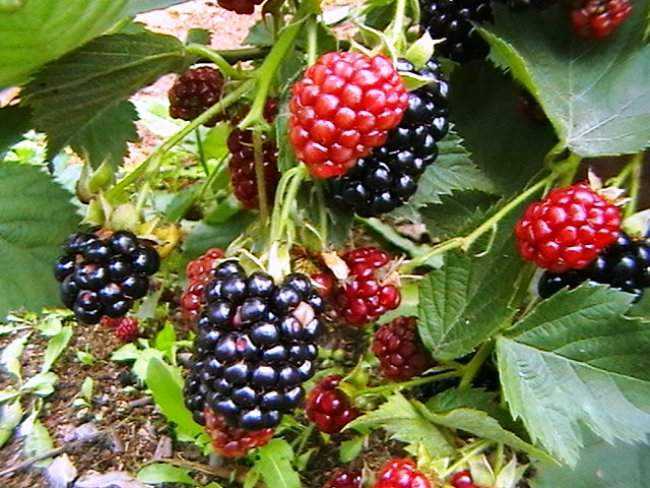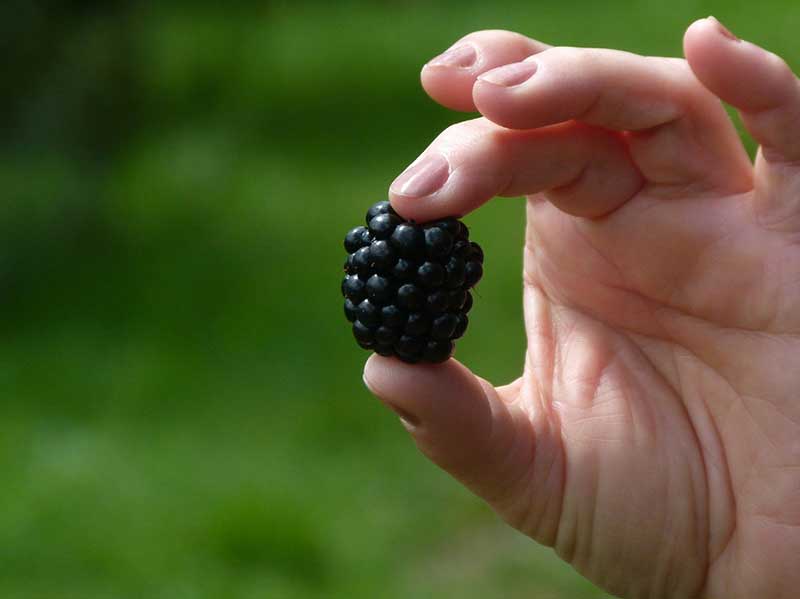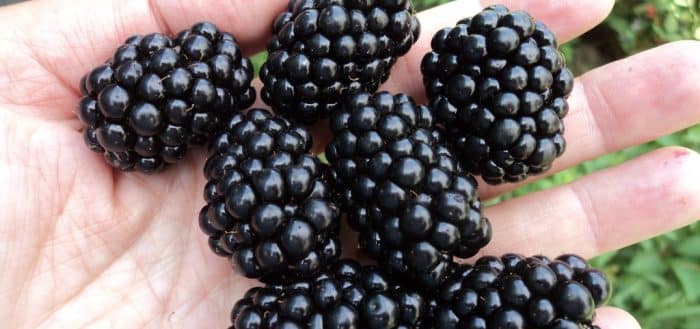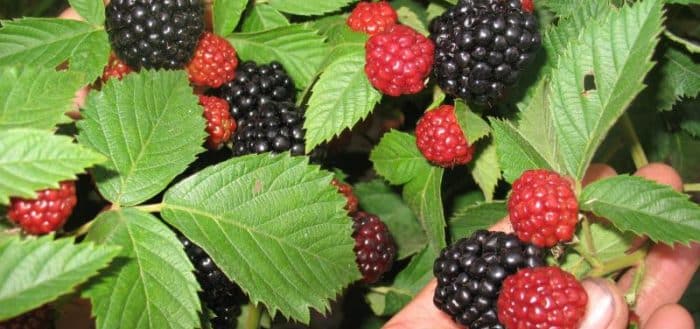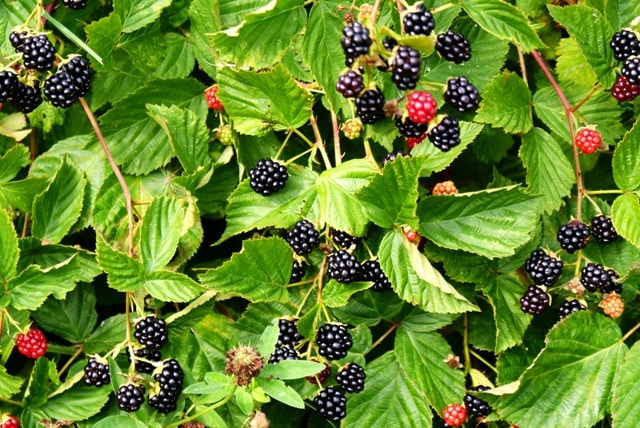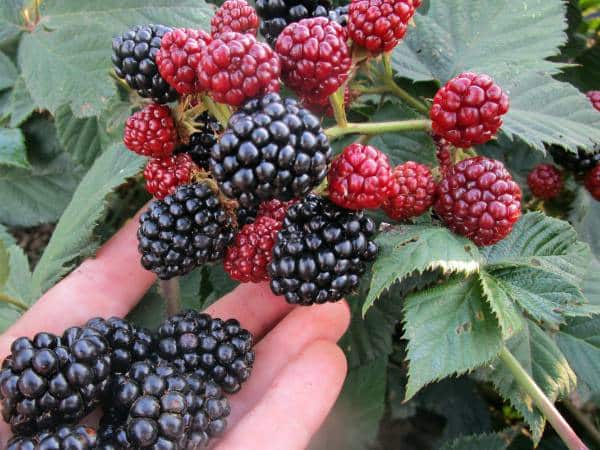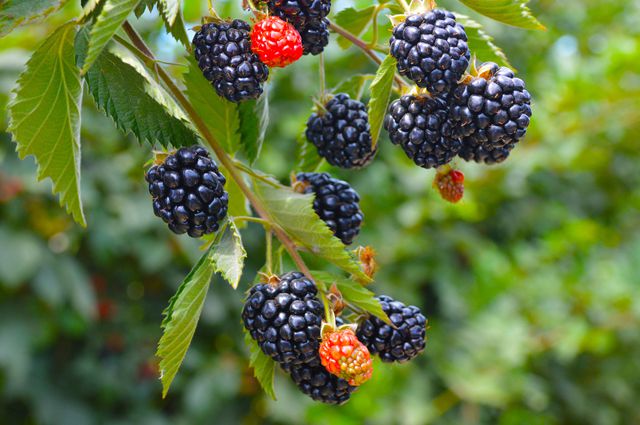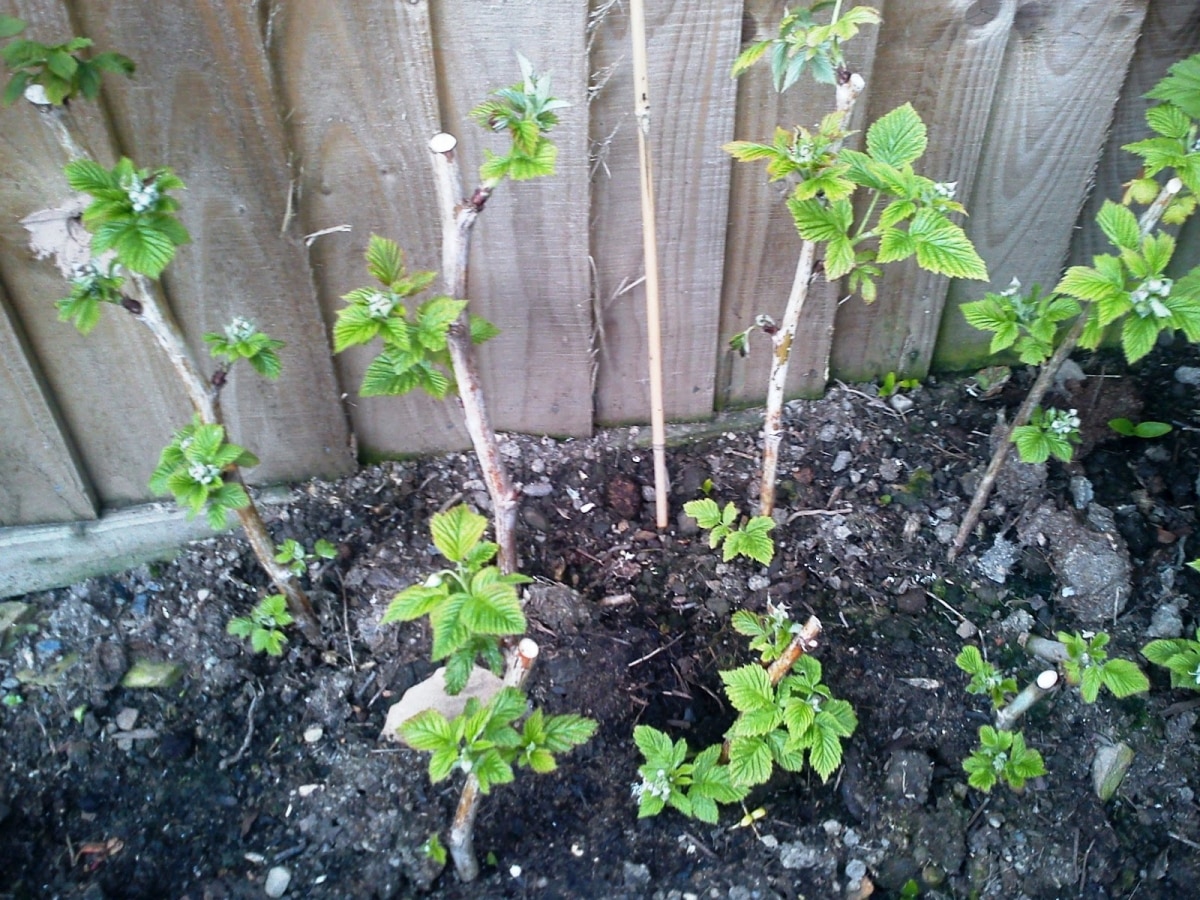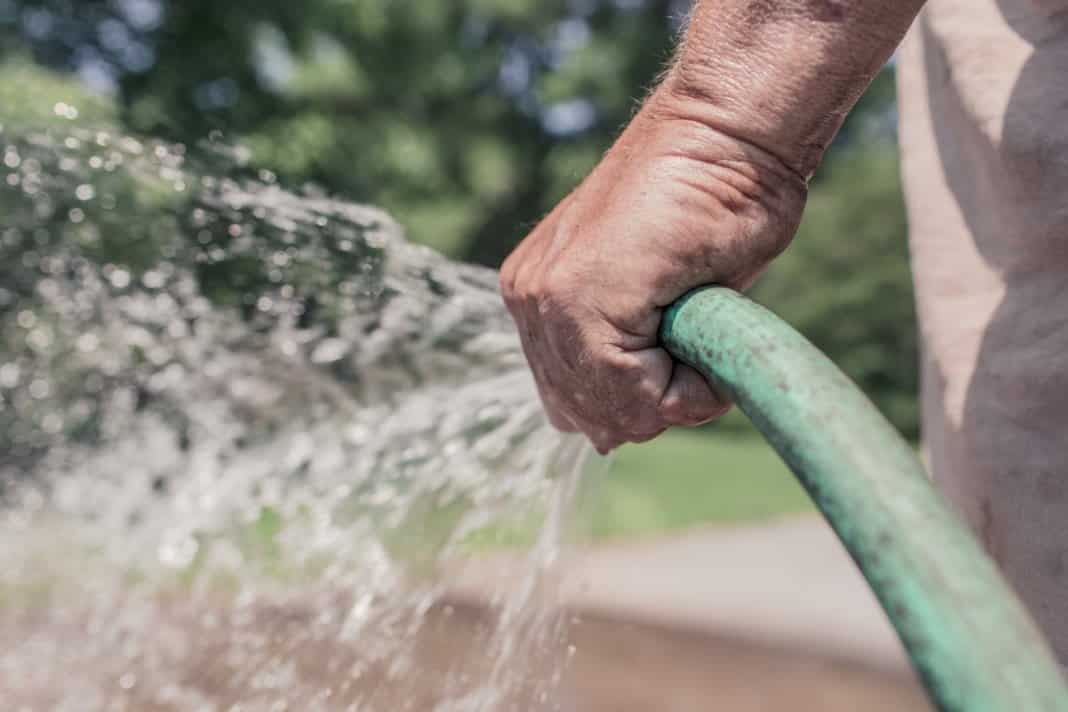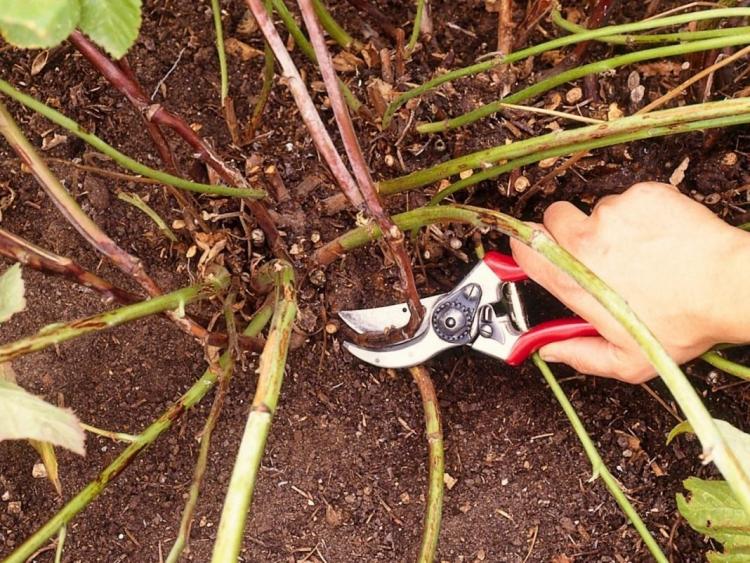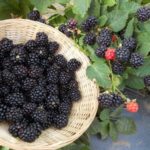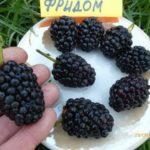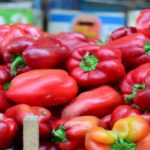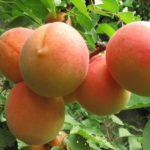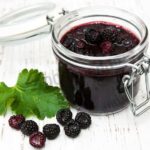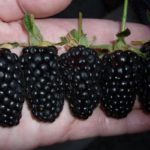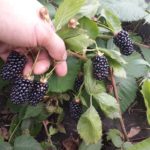Blackberries are not popular with all summer residents, but they are famous for their unpretentiousness and beneficial qualities of the berries. If you choose the right variety, it will produce an annual harvest of selected fruits. When purchasing a seedling, you should choose specimens that can easily withstand frost. Therefore, you should study in advance which varieties of blackberries are the best for the Moscow region.
- Classification of the best varieties for the Moscow region
- Early varieties of blackberries
- Mid-season
- Late blackberry varieties
- Frost-resistant
- Agawam
- Gazda
- Darrow
- Polar
- Unpretentious and productive varieties
- High yielding
- Repairers
- Ruben
- Black Magic
- Prime Ark-45
- Prime Jim
- Prime Yang
- Prime Arc Freedom
- Bush blackberry
- creeping
- Thornless varieties
- Natchez
- Chester
- Kiova
- Klumbia Star
- How to plant and grow blackberries in the Moscow region
- Preparatory work
- Required soil composition
- Timing and proper planting in the ground
- Key points of bush care
- Watering
- Loosening the soil
- Top dressing
- Blackberry pruning
- in spring
- in autumn
- How to tie blackberries
- Blackberry shelter for the winter
Classification of the best varieties for the Moscow region
Blackberries are classified as shrubs. It has perennial rhizomes and shoots that live for 2 years. Plants united by one name often differ in appearance and cultivation characteristics.
Conventionally divided into shrubs:
- Erect. They grow like raspberries. They are also called brambles. The height of the plantings is 2 meters. The stems are straight, but over time they fall in an arc. It is recommended to grow with support. The shoots are covered with large thorns. Prefers abundant watering. With a lack of moisture, it produces a low yield. Recommended varieties for growing: Ruben, Apache, Ouachita, Agawam.
- Creeping. They belong to the subshrubs. Shoots creeping along the ground reach 5 meters. There is no need to install a support for them. The plant has numerous thorns, but small. This species is also called “dewberry”. Advantages include excellent drought resistance and undemanding soil requirements. Requires winter shelter, as it tolerates frost moderately. Even in partial shade it gives an excellent harvest. Varieties worthy of attention: Lucretia, Oregon Thornless, Abundant.
- Transitional. This is a medium-sized plant that first grows vertically and then droops and reaches the ground. The culture propagates by rooting the apex and root layering. It easily tolerates mild frosts, but prefers winter insulation. Popular varieties: Loch Ness, Chachanskaya Bestrana, Valda.
Blackberries are also divided according to ripening time.Each should be considered separately.
Early varieties of blackberries
All varieties that produce a harvest at the end of June are classified as early varieties. These berries have a weak aroma and a sour taste. The fruits are ideal for jam. The best specimens:
- Medana Tayberry. It has high yields and is ideal for commercial purposes. The shoots are covered with numerous spines. The hybrid needs shelter for the winter. It grows as a spreading bush with long vines.
- Giant. It is a high-yielding and disease-resistant variety. There are small spines on the shoots. The creeping bush has high winter hardiness. The weight of one fruit reaches 7 grams.
- Black Butte. Small spines cover the shoots. Refers to new varieties considered high-yielding. The creeping bush has high resistance to diseases and good winter hardiness. It bears fruit for 1.5 months and withstands drought well. The maximum weight of the fetus reaches 23 grams, the minimum is 12 grams.
- El Dorado. The harvest ripens early, but over a long period of time. Endowed with high resistance to diseases. The shoots are covered with large thorns. In winter it is necessary to cover it, since the variety has average winter hardiness. Refers to the erect ones.
It is important to remember that yield depends not only on the chosen variety, but mainly on proper care.
Mid-season
When the early varieties are harvested, the mid-ripening ones begin to bear fruit. Their peculiarity is amicable maturation. The berries have an amazing aroma, sweetness and juiciness. Best options:
- Lawton. The spikes are large in size and colored brown. It is highly resistant to diseases. Possessing good productivity, it allows you to collect 10 kilograms of selected berries from one plant. Refers to the erect ones.The length of the branch reaches 2.5 meters. The crop has average resistance to frost. Able to withstand down to -21 °C. Therefore, it is better to cover the variety for the winter. The weight of the berry is 4 grams.
- Tupi. This variety can often be seen for sale in stores. It has excellent transportability, long storage and good appearance. He practically does not suffer from common diseases. The spines on the shoots are small. Resistance to harsh winters is average, so shelter will be required. Refers to the erect ones. The weight of the berry is 10 grams.
Late blackberry varieties
The taste of the harvest can be enjoyed in early autumn. The berries are well suited for canning and preparing aromatic and tasty juice. Best options:
- Chokeberry. The shoot is covered with many small spines. The yield per bush reaches 5 kilograms. About 17 berries grow on one branch. The fruiting vine reaches 1.5 meters in length.
- Texas. Gives an average harvest. The bush spreads and does not have root shoots. Has normal disease resistance. Berry weight 11 grams. The shoots are covered with large thorns.
- Abundant. The crop has an average yield. The shoots, covered with small spines, reach a length of 3.5 meters. Poor winter hardiness forces the plant to be covered for the winter. Fruit weight is 4 grams.
Frost-resistant
Winter-hardy varieties are more suitable for the Moscow region. These mainly include hybrids, but there are also prickly varieties. Each type should be considered in detail.
Agawam
This is the best option for the Moscow region. Main characteristics:
- able to withstand frost of -40 °C;
- does not require shelter;
- grows into a tall and powerful plant;
- shoots are prickly and unpretentious;
- there is no need to bend to the ground for the winter;
- grows well and produces a bountiful harvest even in abandoned areas;
- the berries are aromatic and sweet and sour;
- the bush produces 5 kilograms of selected fruits;
- The weight of the berry is 5 grams, with regular feeding the weight increases to 10 grams.
With proper care, productivity increases.
Gazda
Distinctive features:
- the bush is vigorous, the thorns are small;
- begins to bear fruit in the 2nd year;
- ripens in early autumn;
- after harvesting, the shoots must be cut off;
- has good disease tolerance;
- berry weight 7 grams;
- The harvest is well transportable and has a long shelf life.
Darrow
Characteristics:
- high winter hardiness, withstands frost of -35 ° C;
- the trunk is powerful and tall, has prickly thorns;
- high-yielding variety;
- berry weight 4 grams;
- is classified as erect and reaches 3 meters in height;
- sweet and sour berries;
- every year the yield increases;
- the average yield is 10 kilograms.
Polar
Peculiarities:
- straight-growing shoots reach 2.7 meters;
- no thorns;
- fruit weight 11 grams;
- the aroma is pleasant and the taste is sweet;
- bears fruit for a long time;
- resists pests;
- winter-hardy.
Unpretentious and productive varieties
Sadovaya Agawam blackberries the most unpretentious and productive. It instantly adapts to any terrain. A bush in one area can bear fruit for 10 years. In second place is the Darrow variety.
High yielding
The following varieties bring a good harvest in the Moscow region:
- Flint;
- Agawam;
- Ufa local.
Repairers
The bushes grow compact, but during the period of fruit ripening they require tying. The peculiarity of this variety is that it is harvested twice per season. The first is in early summer from old shoots, and new bushes produce berries in the fall. If the shoots are cut off at the root in the fall, the varieties will bear fruit only once at the beginning of autumn.
Ruben
Belongs to the most famous and popular variety. Grows up to 2 meters. The berries are large and heavy.Weight 14 grams. Resistant to frost and disease. There is no need to tie.
Black Magic
The variety is not very resistant to cold, so it is either bent to the soil or completely cut off before frost. Tied to trellises. Gives a good harvest.
Prime Ark-45
Grows up to 2 meters. There are many thorns on the straight, strong shoots. The fruits are elongated, sweet and dense. It bears fruit in early summer, and then a second time - from August until frost.
Prime Jim
The shoots are thorny, erect and strong. Fruits with a sweet and sour taste are elongated and large.
Prime Yang
This erect plant grows to medium height. Sweet fruits are endowed with a pleasant apple aroma. Refers to the earliest variety of all remontant varieties.
Prime Arc Freedom
Peculiarities:
- grows without thorns;
- the variety is unpretentious;
- has good taste;
- the fruits are large in size and well transportable;
- when covered for the winter, they are capable of bearing fruit twice next season.
Bush blackberry
Due to their compactness, bush blackberries are the easiest to grow. The lashes need to be tied up, but they are limited in growth. The following varieties are especially distinguished:
- Lawton;
- Agawam;
- Chokeberry.
creeping
Creeping berries have long shoots. Scourges have the ability to weave along the ground. At the same time, the berries begin to rot, and their collection becomes difficult. The fruits are large in size. Best options:
- Black Beauty;
- Texas;
- Giant.
Thornless varieties
The best variety without thorns is Black Satin. The height reaches 5 meters, and is formed on a support. The weight of the berries is 8 grams. The fruits ripen gradually throughout the summer. Thanks to the power, 20 kilograms of berries are removed from the bush.
Natchez
The berries ripen early and are huge in size.The taste is high, somewhat reminiscent of cherries. The variety comes from America.
Chester
Good frost-resistant variety. Able to tolerate frost -26 °C. Refers to high-yielding crops. Has good taste.
Kiova
Famous for its large fruits and productivity. It is distinguished by extended fruiting, lasting 6 weeks. The weight of individual berries reaches 20 grams. 6 tons of fruit are harvested per hectare.
Klumbia Star
Sweet berries with a slight sourness weigh 15 grams. Possessing high productivity, it allows you to collect 16 tons of fruits from one hectare. Without loss of taste, blackberries can be stored for 4 days. The shoots of the creeping bush reach 5 meters. After fruiting is completed, they die off.
How to plant and grow blackberries in the Moscow region
Blackberries are lovers of light, but even in dark places in the countryside they can please gardeners with good harvests. But without access to the sun, the harvest will be minimal, and the fruits will grow small. Growing does not require much effort, and with minimal care the plant will delight you with a good harvest.
Preparatory work
The pit for planting seedlings must be prepared at least three weeks in advance. The best option is to prepare a place in the fall and add manure to the hole.
The plant is purchased with a strong root system and without damage.
Required soil composition
You will need fertile and loose soil made from rotted plant residues.
Timing and proper planting in the ground
Any novice summer resident does not know when to plant a plant correctly, so that it takes root and pleases with the harvest faster. Therefore, before purchasing, study important points:
- Plant seedlings immediately after the soil thaws.
- If the bush has long lashes, then place the plant in a row every 2 meters. For erect ones you will need a distance of 1 meter.
- Between the rows they maintain 2.5 meters.
The site is chosen to be sunny and protected from the wind. The ideal place is the edge of an apple orchard. Groundwater should be below 1.5 meters.
Key points of bush care
Agricultural technology is an important condition for obtaining a bountiful harvest. Although the plant is unpretentious, it requires special attention. Blackberries require constant inspection. If pests are detected, destroy insects mechanically or chemically. At the first signs of disease, treat with special preparations.
Watering
The crop easily tolerates drought, but prefers moist soil. Regular watering will help achieve a good harvest.
Loosening the soil
To make the plant feel better, the soil is saturated with oxygen by loosening. Then mulch the soil to retain moisture. This increases fruiting.
Top dressing
If the plant has slowed down or there is a reduction in yield, then apply 20 grams of nitrogen fertilizer to each bush.
Blackberry pruning
The plant needs regular pruning. Conducted twice a season.
in spring
Shoots that did not survive the winter are removed. Then, to improve fruiting, the tops of healthy branches are cut off.
in autumn
There are two types:
- In a remontant variety, shoots are removed at the root. This is aimed at obtaining a late harvest.
- Remove fruit-bearing biennial shoots and excess growth from the usual variety at the root. Leave only strong stems and cut them by a quarter.
How to tie blackberries
Upright plants are tied with a cloth to the bottom row of the trellis and allowed to grow horizontally.This will make it easier to cover the bushes for the winter in the future.
Blackberry shelter for the winter
To protect the plant from frost, the bushes are bent to the ground and covered with covering material. Also, to protect against cold weather, the soil is mulched.

